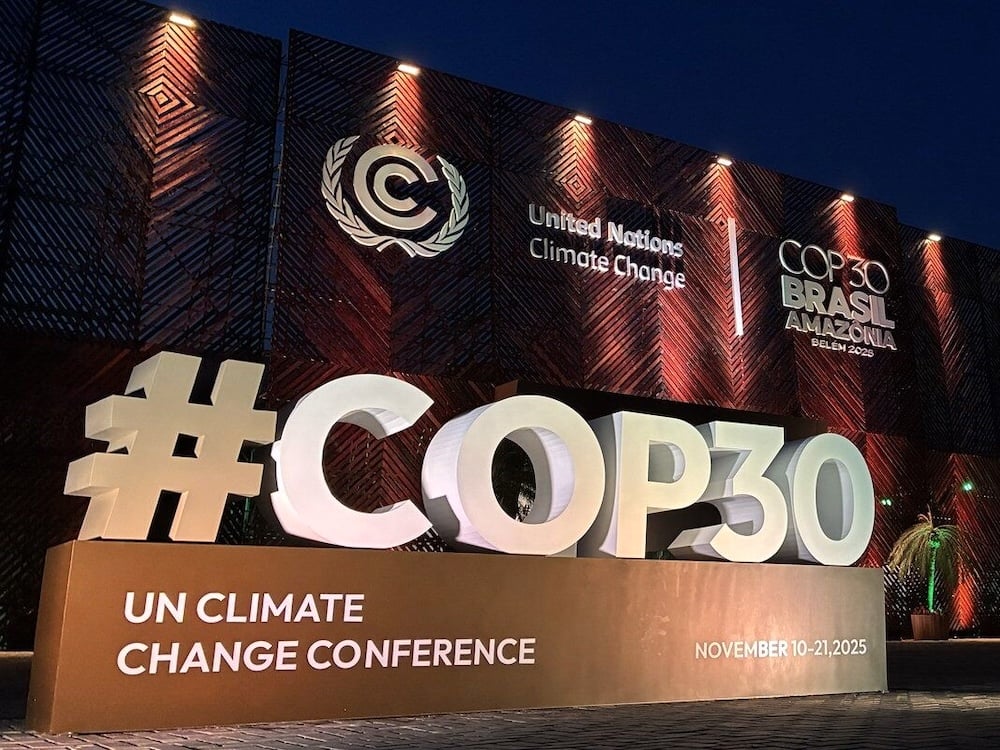Business
Canada’s Climate Commitments Falter as Emissions Rise Again

Canada has faced significant criticism for failing to meet its climate change commitments, as recent reports reveal a troubling increase in greenhouse gas (GHG) emissions. Despite initial promises made during the 1992 Rio Earth Summit, emissions have risen sharply since then. By the year 2000, Canada’s emissions reached 140 million tonnes, a staggering 23 percent increase compared to 1990 levels. This trend has continued, leaving Canada as the only member of the G7 with rising emissions since that pivotal year.
The primary culprit behind this failure is Alberta’s oilsands, a sector that has thrived since the late 1990s. Thanks to technological advancements and government support, Canada became the fourth-largest oil producer globally. In fact, it now supplies more crude oil to the United States than all 12 OPEC member states combined. The result has been a consistent pattern of record oil production, with 5.1 million barrels per day projected for 2024.
Yet, while oil production flourishes, the environmental consequences have been largely overlooked. Canada’s latest inventory of GHG emissions for the United Nations indicates that emissions from upstream oil and gas operations nearly doubled between 1990 and 2023. This increase, driven primarily by the oilsands sector, accounted for 93 million tonnes of emissions, surpassing the country’s total emissions increase of 88 million tonnes during the same period. In 2023 alone, oilsands emissions reached a record 89 million tonnes, nearly six times the 15 million tonnes emitted in 1990.
The upcoming COP30 climate conference in Brazil has raised questions about Canada’s commitment to addressing these pressing issues. Despite the global urgency to tackle climate change, Canada has signaled intentions to boost oilsands output. Alberta Premier Danielle Smith has set ambitious targets, instructing Energy Minister Brian Jean to develop a strategy aimed at increasing oil production to eight million barrels per day by 2035, a 57 percent increase from last year’s production levels.
Significantly, there has been no discussion in Smith’s mandate letter regarding the impact of this production increase on GHG emissions. Advocating for a reduction in emissions has become a contentious issue in Alberta, where such discussions are often dismissed. The recent federal budget also failed to propose measures that would limit oil production or emissions.
Despite Prime Minister Mark Carney‘s support for a federal oil and gas emissions cap, the implementation remains uncertain. The Trudeau government opted for a cap due to the relentless rise in oil and gas emissions over the past three decades. Should the cap be implemented, oilsands production is expected to soar to a new record of four million barrels per day by 2030, translating to projected GHG emissions of 92.4 million tonnes, representing a 4 percent increase from the current record.
The government’s recent budget outline suggests a shift away from strict emissions caps toward carbon pricing and methane regulations, although details remain vague. Alberta has also made changes to its emissions trading market, which the Canadian Climate Institute has criticized for weakening the system rather than strengthening it.
Supporters of Canada’s inaction often argue that its emissions are negligible compared to larger polluters like the United States and China. However, this perspective overlooks a critical reality: nations contributing less than 2 percent of global GHG emissions collectively account for over one-third of global emissions. Countries like Canada, Australia, and EU members produce more emissions than both China and the United States combined, underscoring the need for significant action.
To fulfill its role as a responsible global citizen, Canada must shift its focus from increasing oil production to reducing emissions. As Prime Minister Brian Mulroney envisioned in 1990, Canada should prioritize sustainable practices over an unwavering pursuit of oil production. Addressing climate change effectively requires a commitment to reducing, not increasing, record oilsands emissions.
-

 Science3 months ago
Science3 months agoToyoake City Proposes Daily Two-Hour Smartphone Use Limit
-

 Health3 months ago
Health3 months agoB.C. Review Reveals Urgent Need for Rare-Disease Drug Reforms
-

 Top Stories3 months ago
Top Stories3 months agoPedestrian Fatally Injured in Esquimalt Collision on August 14
-

 Technology3 months ago
Technology3 months agoDark Adventure Game “Bye Sweet Carole” Set for October Release
-

 World3 months ago
World3 months agoJimmy Lai’s Defense Challenges Charges Under National Security Law
-

 Lifestyle3 months ago
Lifestyle3 months agoVictoria’s Pop-Up Shop Shines Light on B.C.’s Wolf Cull
-

 Technology3 months ago
Technology3 months agoKonami Revives Iconic Metal Gear Solid Delta Ahead of Release
-

 Technology3 months ago
Technology3 months agoApple Expands Self-Service Repair Program to Canada
-

 Technology3 months ago
Technology3 months agoSnapmaker U1 Color 3D Printer Redefines Speed and Sustainability
-

 Technology3 months ago
Technology3 months agoAION Folding Knife: Redefining EDC Design with Premium Materials
-

 Technology3 months ago
Technology3 months agoSolve Today’s Wordle Challenge: Hints and Answer for August 19
-

 Business3 months ago
Business3 months agoGordon Murray Automotive Unveils S1 LM and Le Mans GTR at Monterey









